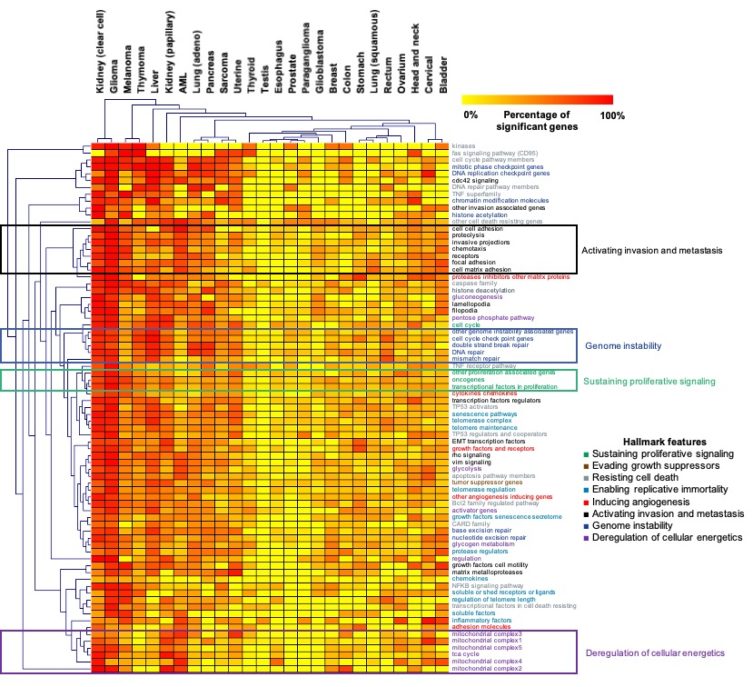The abnormalities of various intra- and extracellular processes are responsible for tumor formation. Earlier studies have described eight hallmark categories, which are associated with the formation of tumors. These include cell divisions, inhibiting cell growth, cell death resistance, continuous DNA synthesis, vascularity, invasion and metastasis activation.
 Factors like genome instability, inflammation, the tumor’s immune microenvironment, altered energy metabolism were added later.
Factors like genome instability, inflammation, the tumor’s immune microenvironment, altered energy metabolism were added later.
There’s a large number of genes involved in the development of every cancer hallmark. Researchers examined the correlation between the messenger RNA (mRNA) level of genes and the chance of overall survival.
Transcriptomic data showing the full mRNA sequence of cancer genes were utilized to perform survival analysis across 26 different types of cancer.
The study showed that genes of distinct cancer types responsible for sustained cell growth, genomic instability, energy metabolism reprogramming, invasion and metastasis activation and cell death resistance showed significant correlation with survival. The most genes showing significant correlation with survival were identified in case of thyroid cancer and glioblastoma.
“These results will promote the selection and ranking of the most relevant factors for targeted drug development in all types of tumors. This will also help us select the most effective targeted therapy,” said dr. Ádám Nagy, assistant lecturer of the Department of Bioinformatics and first author of the article.
Pancancer survival analysis of cancer hallmark genes
Ádám Nagy, Gyöngyi Munkácsy, Balázs Győrffy (2021). Scientific Reports 11, 6047 (2021). https://doi.org/10.1038/s41598-021-84787-5


